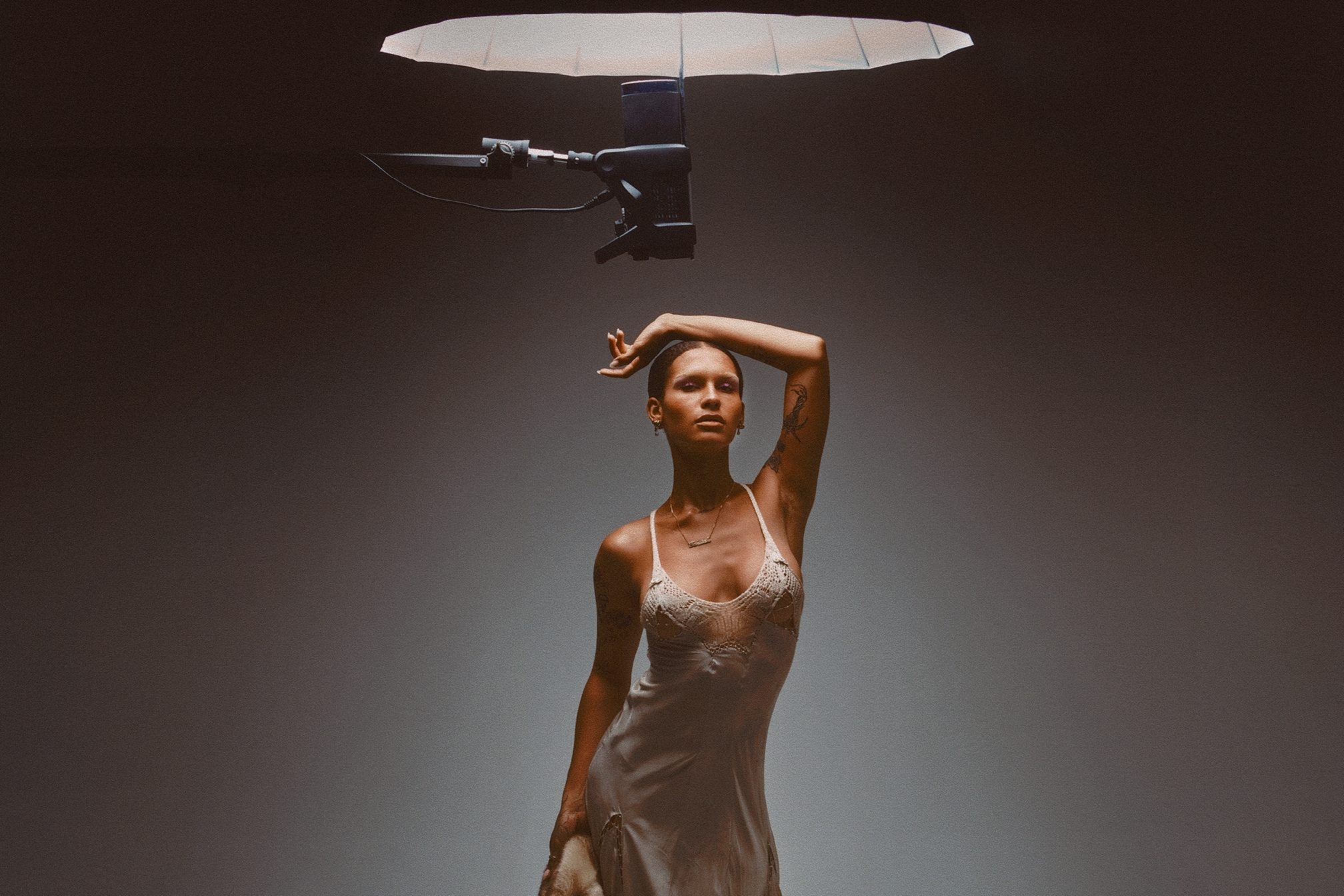 Features
Features
“I want to sink my teeth into new spaces”: How TAAHLIAH is evolving her artistry
Scottish artist TAAHLIAH speaks to Zoya Raza-Sheikh about wanting to be known as more than just a DJ, transforming her sound on debut album ‘Gramarye’, some unpredictable influences, and her future artistic ambitions
“I’m looking for something new,” TAAHLIAH’s pillowy pitched vocals repeatedly confess on ‘Dawn’, the penultimate track of debut album ‘Gramarye’. Her dainty, yet philosophically heavy, lyrics glide over twinkling production and sweeping strings, before trance-like beats mellow out the atmospheric tone, like a painting palette knife blending soft-coloured canvas acrylics. “I wanted to single myself out as an artist and find the right type of creative language that I could consistently use. I was going through the same experiences with love and heartbreak,” she elaborates of process behind the forthcoming LP, due for release via untitled (recs) in October. “With [debut EP] ‘Angelica’, I was still figuring things out. But on this record, my sound has evolved quite a bit, while retaining some familiarities that I always return back to. I was looking to challenge myself and ‘Gramarye’ was a big challenge — I needed some change.”
TAAHLIAH is an artist in every sense of the word. Behind her during our video call sits a looming canvas, partially out of frame, and beautifully painted by her own hand. “It's Candy Darling, an actress in the ’70s,” she notes, casting a look back at it. Her expression is studious, eyes wandering over her work. The portrait is characterful with a homely queer humanity to it, as if it’s the camp Glaswegian equivalent of a Grant Wood piece. Her music, much like her art, is joyously experimental. She creates with emotive flair, producing songs about the temptation to openly feel and surrender to where you’re at — the more inwards you turn, the more profoundly her music resonates.
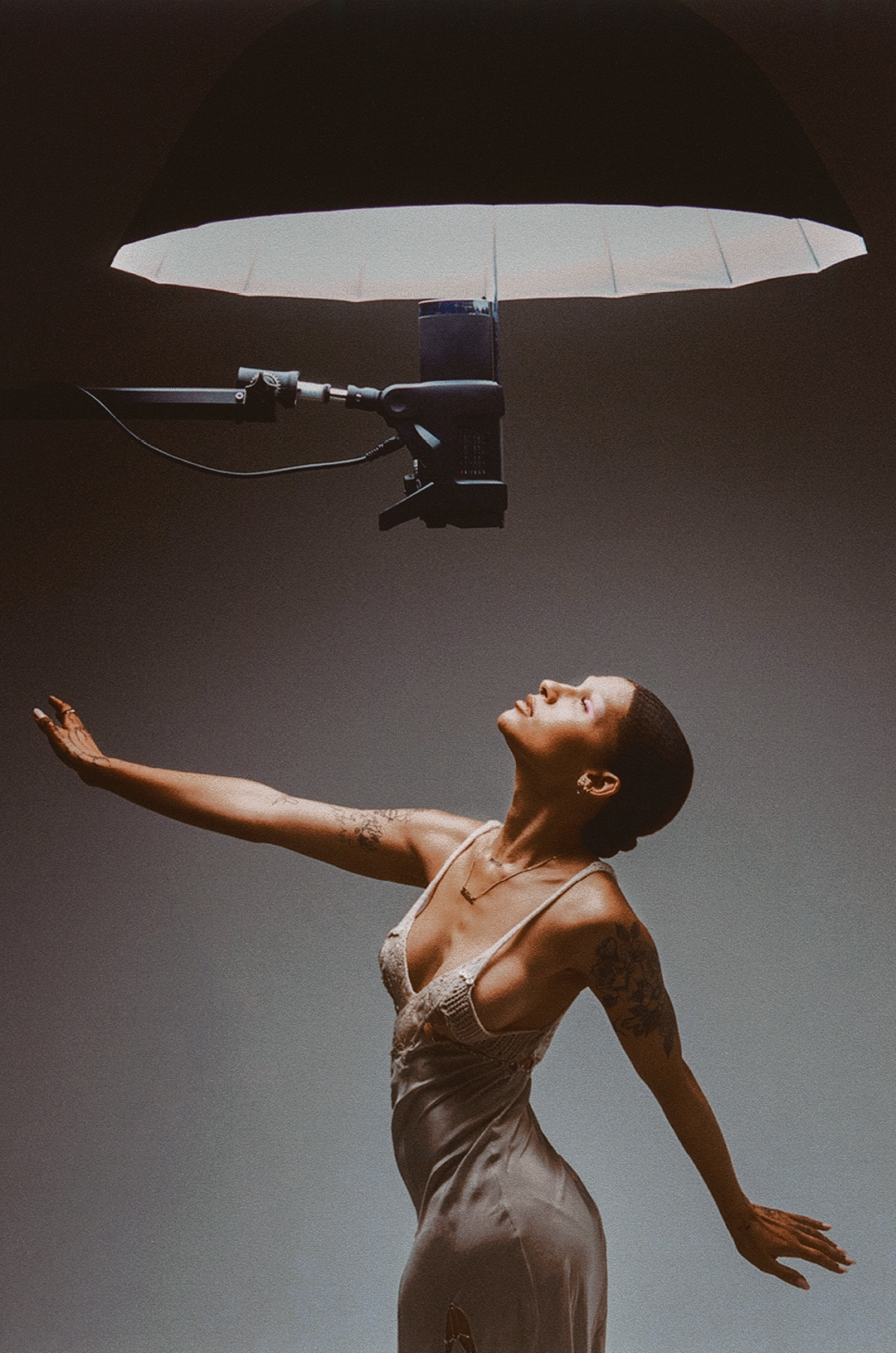
On 2021's ‘Angelica’, the Scottish musician dabbled in hyperpop production. The seven-track project served as an ode to herself and, in part, the LGBTQIA+ community. “‘Angelica’ is about my body. ‘Gramarye’ is about my brain,” she reflects, pondering over a question on dualism in her new project. Light and dark, mind over matter, or body and mind – these are notions all swirling through TAAHLIAH’s free-flowing debut album. Her newly remastered sound is distanced from the synthetic, fast-paced beats of previous releases. Instead, she thoughtfully languishes in slow, striking production and lyricism.
Read this next: The Cover Mix: TAAHLIAH
‘Gramarye’ isn’t an entire reinvention, though, TAAHLIAH nostalgically casts references back to her earlier releases, creating “secret back doors” in her work. She weaves in sounds from previous projects, such as sampling her 2021 single ‘Brave’ on ‘Hours’. Her aestheticism and innovation, however, do not falter. TAAHLIAH doesn’t create the same work, she experiments in ways you wouldn’t expect from the producer: guitar, unedited vocals and string instruments all feature. On one track – ‘Angel’ – her younger brother endearingly vocalises off-beat; on another – album opener ‘Lachrymose’ – she lets the Brooklyn ballroom icon Octavia St. Laurent do the talking, declaring “I am here, and nothing can push me aside.”
The grandeur of ‘Gramarye’ is palpable, it feels like an expansive candyfloss-coloured daydream. The entire album leans on the spirit of Laurent’s words, to be imposing and striking. Its title is intentionally rhythmic, the letters curling around your tongue as you pronounce them. “I wanted a name that would sound like the world that the songs live inside,” TAAHLIAH says. Her delicately curated harmonies, lyrics and melodies all echo through the semi-abrasive phrase. It’s a title that’s supposed to get knotted in your mouth, sitting tough in the back of your throat like a sticky spoonful of room temperature honey.
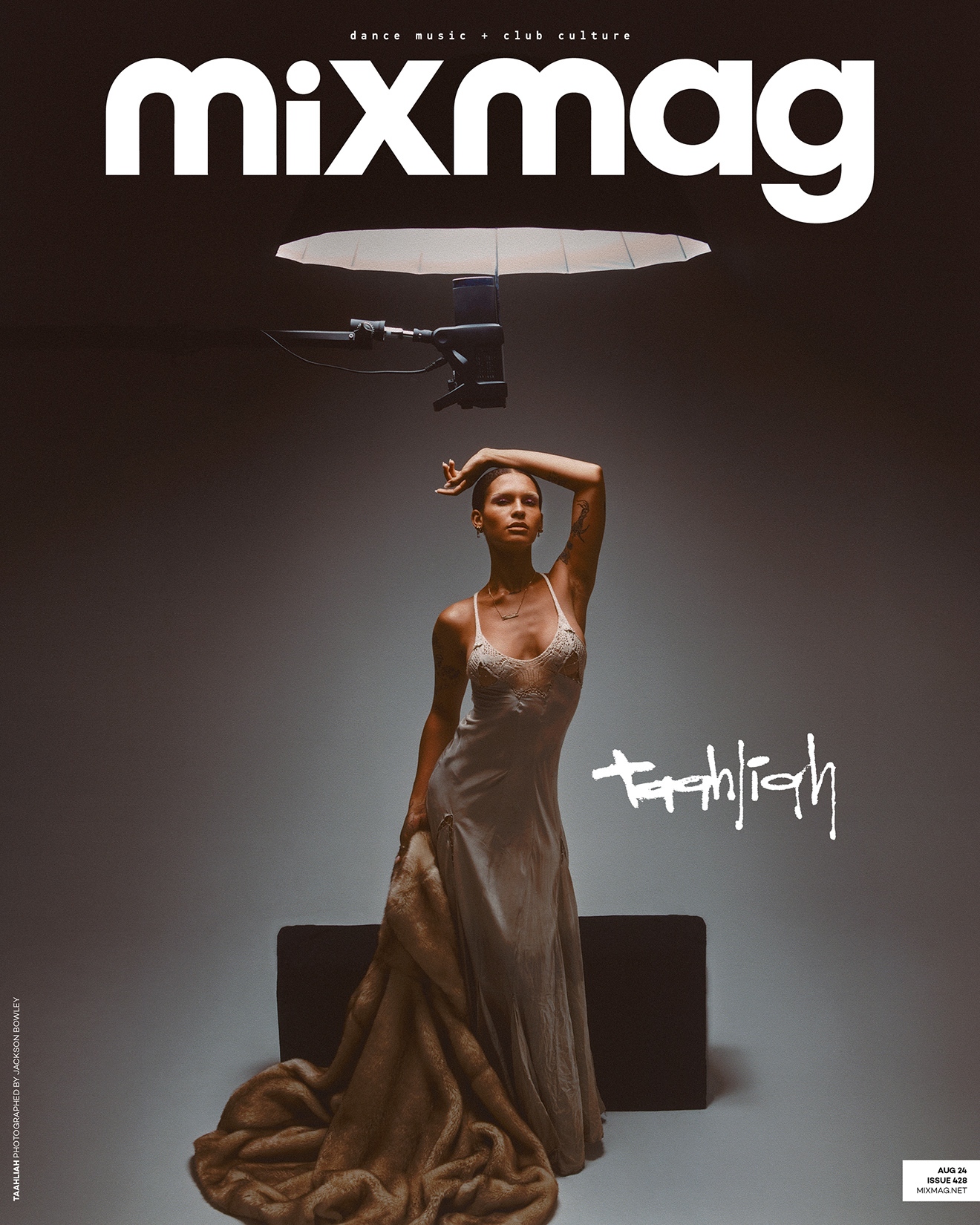
“I wanted something that felt tangible that didn’t immediately feel like a name, but it could be one. I wanted something that I could see myself in. ‘Gramarye’ works because it’s an old Scottish word and it’s the origin of the English word for ‘glamour’, so I enjoyed that heightened hyperrealism within the phrase,” she explains.
“I started making the album in 2021 and, conceptually, it is about going through monumentally dark things and finding a new sense of hope towards the end of that journey,” she explains over our late-afternoon conversation. Across three years of creation, the musician has ushered in self-regulating cycles of being: flushing out “old behaviours”, managing the people she chooses to let into her life, and focusing entirely on her music. The result is a cathartic body of work that walks us through the growth and evolution of TAAHLIAH, as a person and musician. As for the search for something new, the producer admits, “I think I’ve found it, yes, which is incredibly nice to be able to say,” she smiles. “Because, when I was making ‘Gramarye’, I was thinking 'Fuck, something in my life has got to give at this point.'”
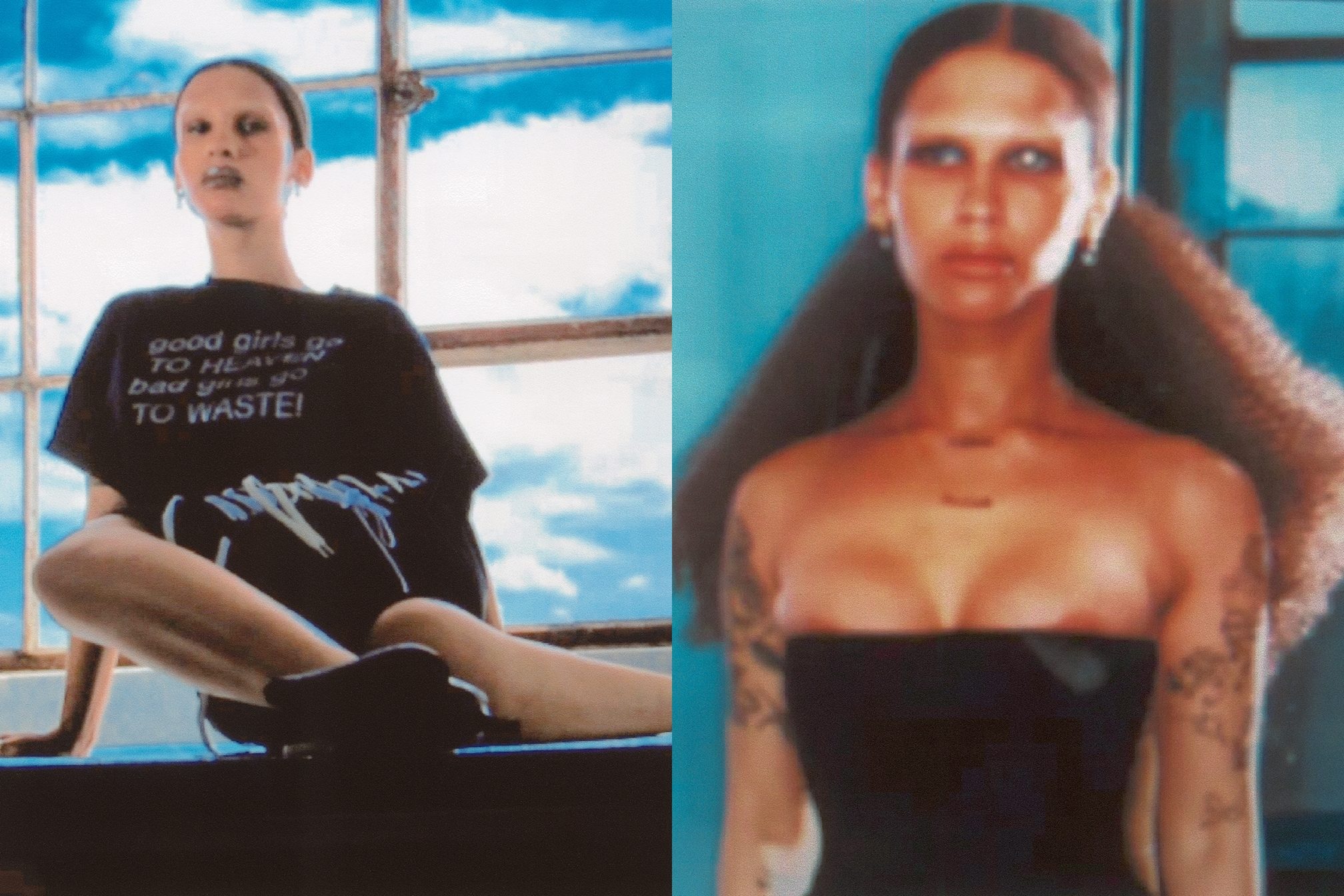
Immersion is TAAHLIAH’s trustiest tool. As you sit and listen, the singer’s soft sonic palette – cushiony synth beats, glittering piano and hazy, smooth tones – steep and stew, hitting harder the longer you step into the world of ‘Gramarye’. Her intuitive production, then, pulls you head first into a dazy dream state of transcendent stories, ranging from electricity-zapped love songs to nostalgia-fuelled break-up ballads. It’s interesting to hear how the album’s steady flow – of cathartic pop and scrappy club beats – once had more of a jagged structure. “The tracklisting was originally going to have all the ethereal soft songs at the start and then all the heavy hitters at the end which sonically makes sense but not conceptually,” TAAHLIAH says. It’s an idea she tweaked after getting some team feedback, moving around songs like an unfinished jigsaw. As the new tracklist structure settled, she emerged with a core, vulnerable throughline. “This album originally started with the phrase: ‘The world is hard, but I'm soft like an angel’,” she explains. “I wrote ‘Angel’ at the beginning of creating this record and it became the whole notion of what this record is centred around. It toys with that line of hard and soft.”
As if an allusion to her art, ‘Gramarye’ sits like a Rothko painting, vivid, with no escape from the emotions it evokes. From beginning to end, it’s a project that emits deep colour tones, creating a uniquely textured image. “Yes!” she says excitedly. “It’s crazy you're saying this because I genuinely look at a lot of my songs as colours. “‘Angel’ is like a turquoise mint green. ‘Holding/Letting Me Go’ is a blue. ‘Whispers’ is so purple. It's actually insane. I'm so happy that you said that.”
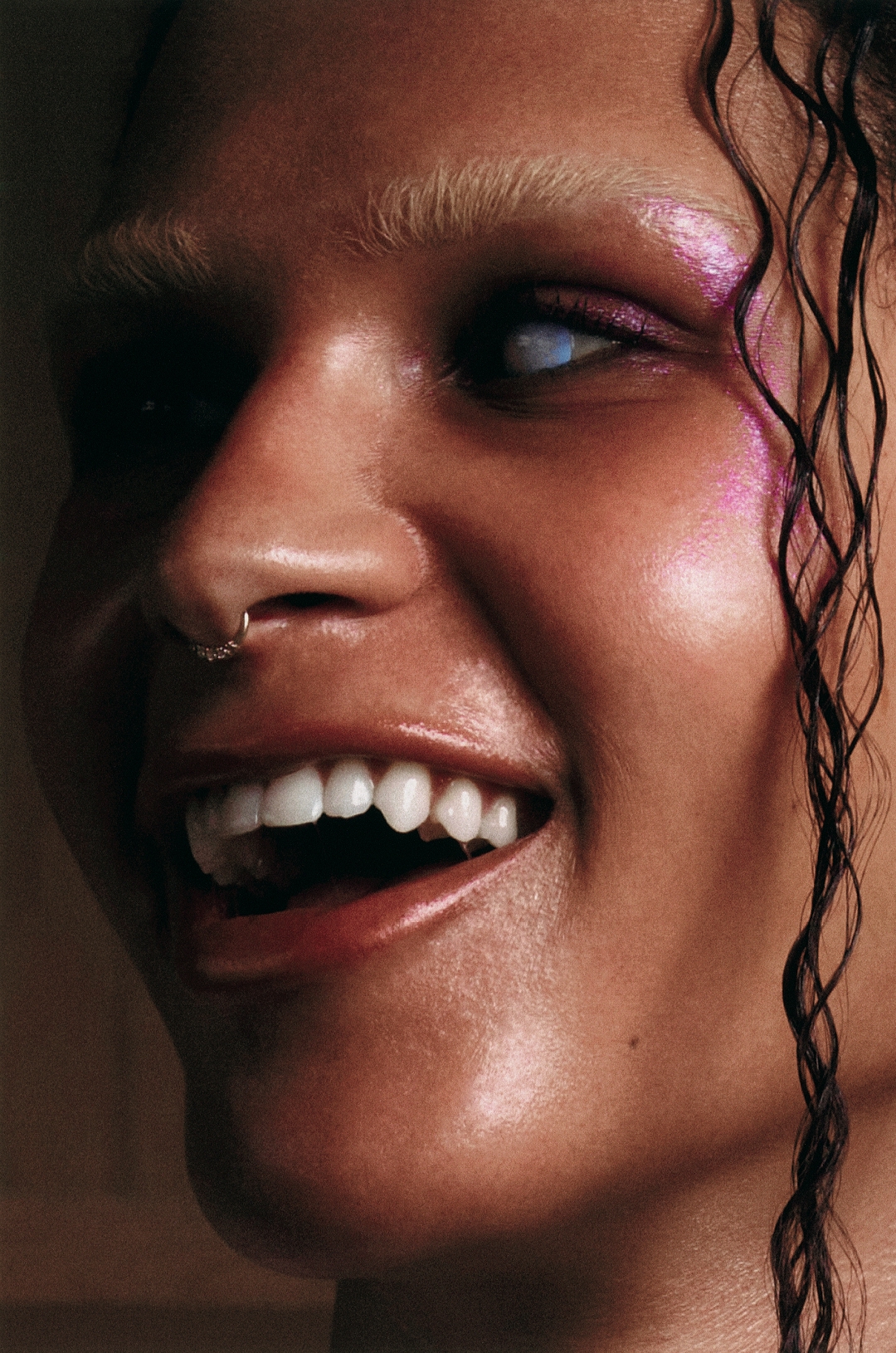
TAAHLIAH began as a 2019 bedroom project, in Glasgow, where she took inspiration from her artist favourites FKA twigs, Zola Jesus and Purity Ring. Her creative roots are also sewn into working-class Scottish club culture and the influential sounds it has produced, as well as growing up fascinated by artists like Florence + The Machine and Beyoncé. Originally from small-town Kilmarnock, East Ayrshire, the musician moved further inland after high school to attend Glasgow School of Art, where she studied painting and soon discovered her off-kilter club sound. The release of her 2021 debut single ‘Brave’ kickstarted her career and led to her performing alongside the likes of A.G. Cook, 100 gecs, and the late SOPHIE.
Read this next: Exploring the outer reaches of Scotland's music scene
The early era direction of TAAHLIAH was joyfully experimental, but the musician quickly found a creative dissonance with the pokey, pitched-up vocals of the hyperpop genre. “I felt incredibly pigeonholed in that genre,” she says. “I was becoming really frustrated because it felt like it was limiting my own art. With this record, I wanted to challenge myself. This was first time I had ever worked with live instruments, the first time I’d ever sung on my own work, and the first time I’d ever collaborated with people outside of my usual network.”

The zinginess and brash beats of hyperpop no longer have the allure of its early days for TAAHLIAH. “It's not a genre of music that I listen to much anymore,” she says. As for how her art is perceived now, she no longer wants to deal with the projected limitations of one label. “There's also a lot of racial connotations within that. I was always being compared to white artists,” she says. “It did feel extremely limiting because you're always creating a hierarchy whenever you draw comparisons like that, and I wasn't comfortable with that.” Her initial experimentation with the genre isn’t something she regrets, but she describes it as an “obsession” born out of a shortage of diverse musical references, which she's now expanded beyond.
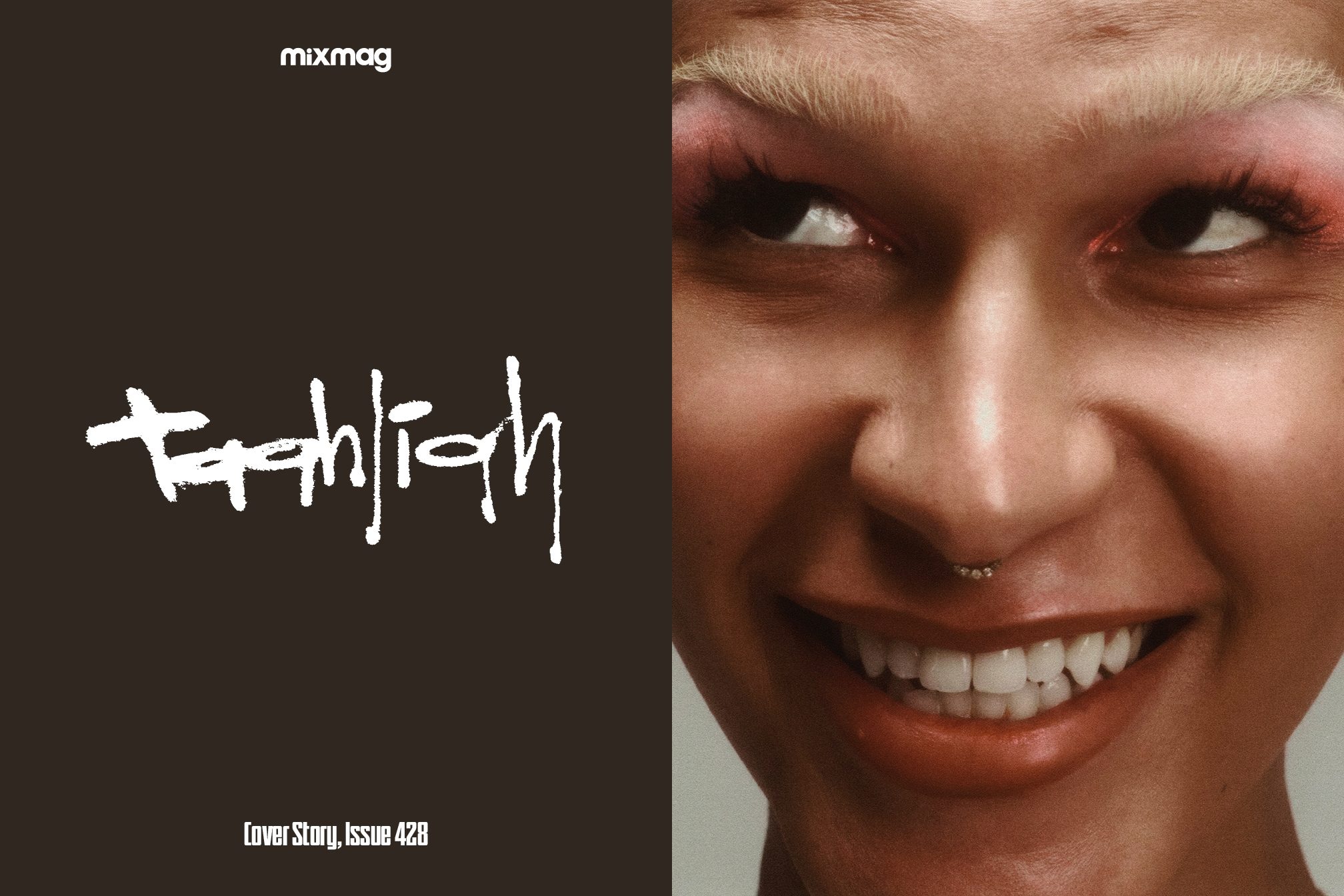
Some of TAAHLIAH’s new-found influences may come as a surprise. In her “non-specific” genre-coded album, she reaches for eclectic and deliberately wide-ranging sounds. As you sink into her music, ricocheting synths, subdued harmonies and airy production are splattered throughout songs like a nimble wrist flick of paint from a saturated brush. The deep-coloured sonics are iridescent and glimmering, like glitter-adorned beats.
Whisper-soft vocals – some acutely pitched, some huskier and earthy – weave through tracks, creating emotively raw touch points. Each lyrical repetition reels off like a shaky prayer – whether it’s TAAHLIAH echoing she’s cut an ex-boyfriend out of her heart and mind on ‘Whispers’ or comparing herself to the cutesy divine on ‘Angel’. The music’s emotionally rich, steady club beats and spliced instrumentation are partly inspired by a nostalgic combo of dream pop acts and Y2K indie throwback influences which TAAHLIAH grew up on.
“I was listening to a lot of Imogen Heap, and a couple of Title Fight songs, Bombay Bicycle Club, the Cocteau Twins, a lot of Lana Del Rey, quite a bit of Caroline Polachek. I stopped listening to electronic music for a hot minute,” she says, pulling up a doc on her laptop titled ‘Gramarye playlist’. “Lots of guitars, some shoegaze, and things I’ve always had a bit of a silent interest in.” The influence of grainy indie guitars and Chairlift-style vocalisations helped TAAHLIAH emulate an air of nostalgia across her album, playing on sounds (and songs) she loved listening to as a teenager. “A lot of the music that I was listening to at that time was so personal and open, “ she said. “I wanted to create this real poetic journey, with lyricism, and touch on a lot of things that I hadn't touched on before.”
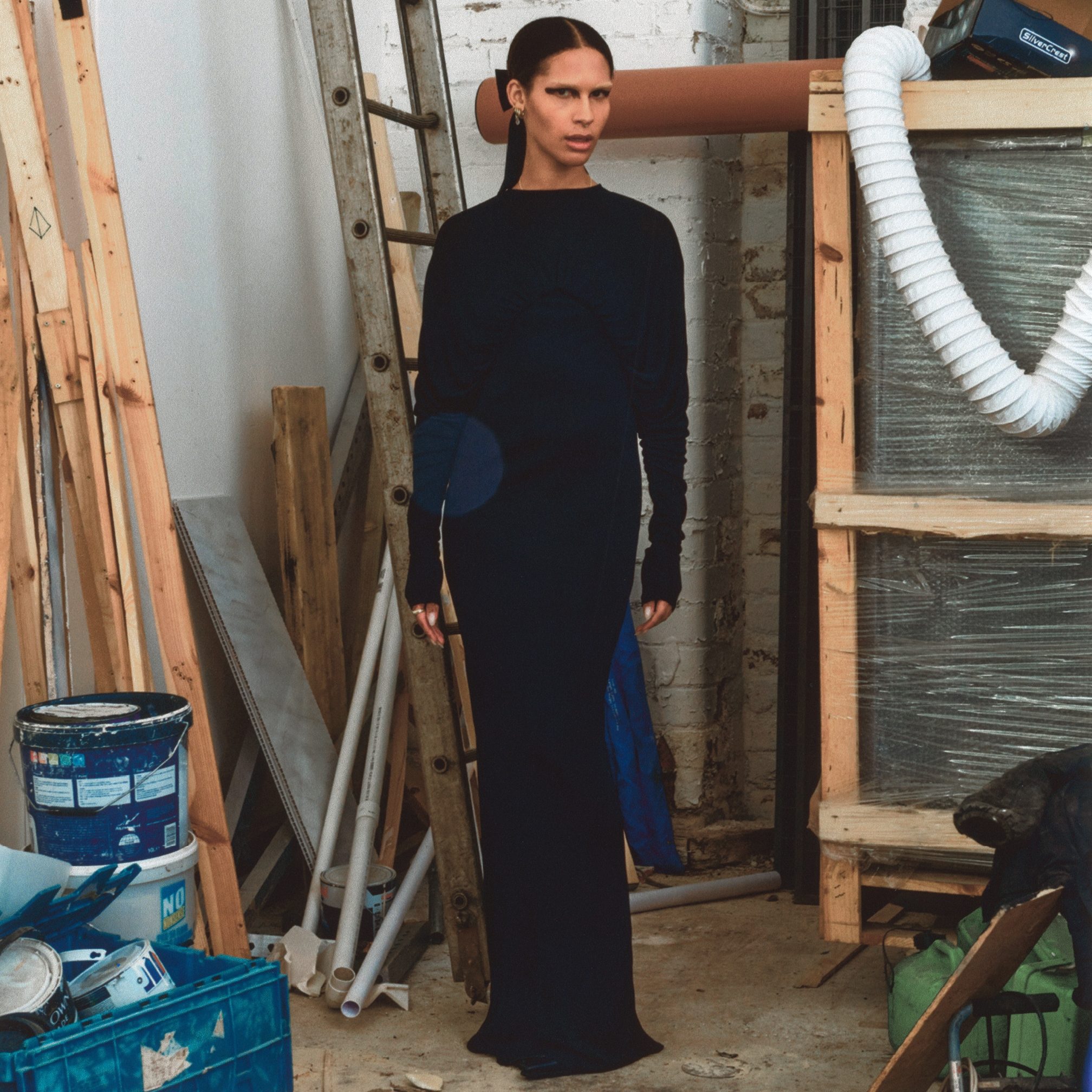
Throughout ‘Gramarye’, TAAHLIAH corrals sounds into a breath-taking yet sugary project, dialling up sledgehammer dancefloor beats when she feels and zipping to ethereal, glittery ballads, perfect to accompany any number of heart-wrenching sunsets. Her 11-track project emulates the candour and diligent electronic production found across her relatively new euphoric discography. This output so far has seen TAAHLIAH win consecutive AIM Awards and Scottish Alt Music Awards, in 2022 and 2023 respectively, and established her as a new-generation gem of the underground queer club and DJ scene.
Read this next: HONEYPOT is Dublin's queer nightlife utopia
However, as a new chapter emerges, TAAHLIAH is reconsidering what she wants to now be known for. “Being a DJ has been a fundamental part of my career,” she says. “But now, I want to sink my teeth into new spaces.” The glitzy, behind-the-decks profession has allowed her to slip into some of the most illustrious clubs around. She lit up sweaty Boiler Room sets in Manchester, Barcelona, and Paris, and has taken over European festivals – including Sziget, Glastonbury, and Dour – all as an emerging artist. But while career milestones were countlessly achieved, the cyclical self-exhibition of art in front of souped-up crowds no longer felt creatively fulfilling for the musician. “I felt like a performing entity being shoved in front of a crowd, getting told what to do, and that can be incredibly draining,” she says.

The rhythm of slinking away to studios, writing beats at home and prepping for shows became a siloed, unchallenging profession. Instead, TAAHLIAH wants to broaden how she’s seen as a creative, undeterred by the supposed conventional routes and avenues of career progression. “It’s not that I don’t want to be a DJ anymore, its that I want to be known for my artistry,” she says.
Expression, for TAAHLIAH, is a crucial dimension of music. “I’m always looking to be genuine and honest in my work. It's always about my own personal experience and what I've been through,” she says. Her confessionals, on ‘Gramarye’, are like melodic excavations – heart on the sleeve retellings of romances, desire and fuzzy internal thoughts. Her music, she notes, doesn’t always have to be much bigger than that. Truth-telling can be forthright without wider contexts being pulled into the picture. “I want to create a piece of work that was by an artist who happened to be trans, that wasn't about being trans – and I think that you can hear that in a lot of the songs,” she explains. Her motive, this time, is still personal but one she wants to have depoliticised from her identity. “I was growing frustrated with people who were bringing my identity into my work. It was understandable with ‘Angelica’ because there are obvious songs about being trans and that whole journey, but from then onwards, none of the work that I'd created after that was about my identity.” Instead, TAAHLIAH wants her indie-pop, downtempo tunes to speak for themselves and connect with her audience. “It's meant to take you on a journey from dark to light. It has a very vulnerable edge, but it conjures up so many different emotions.”
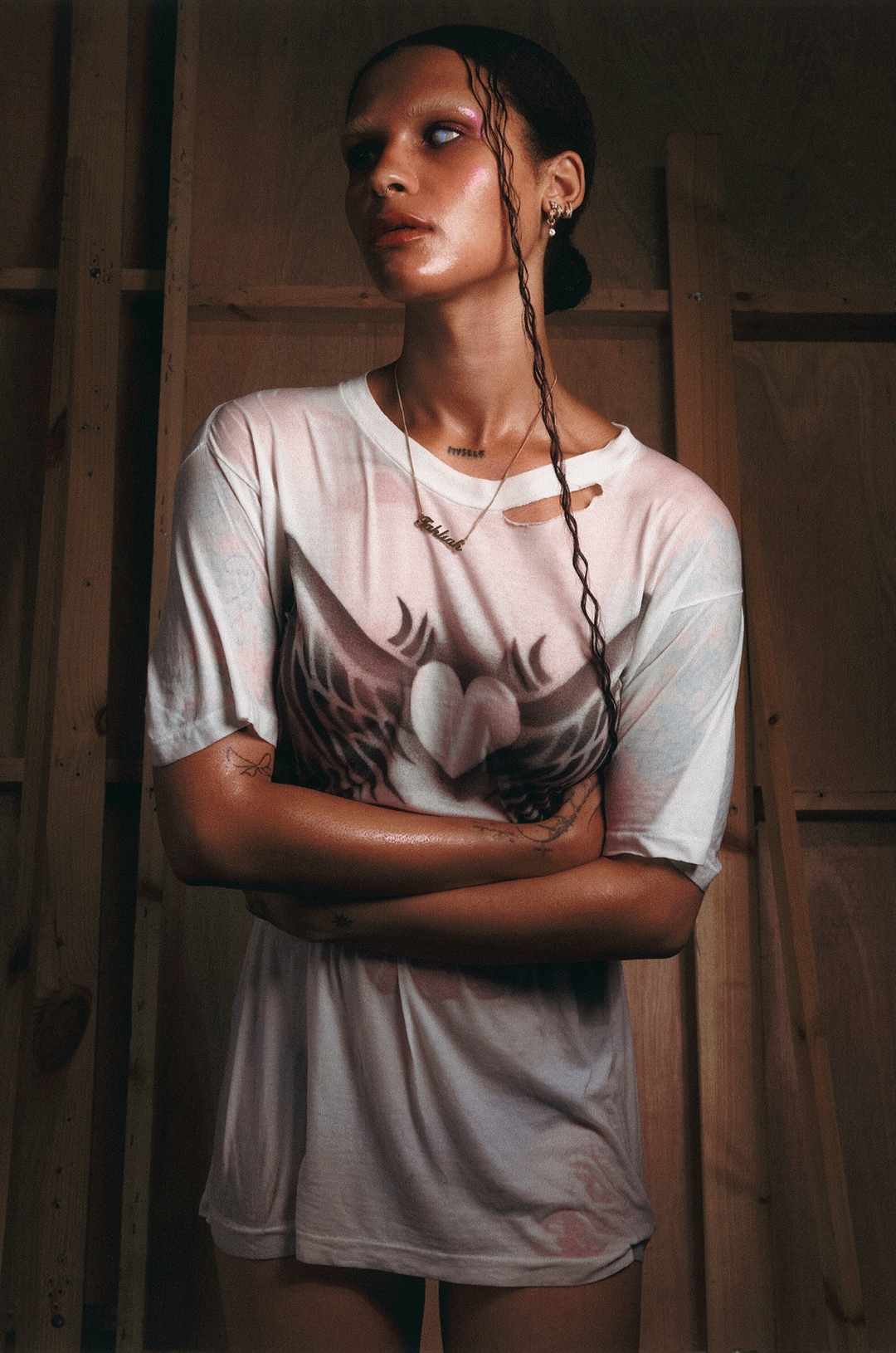
The transformation of TAAHLIAH’s music from ‘Angelica’ to ‘Gramarye’ feels regenerative. Her slow-burning songs are emotionally complex, flipping between devastating lyrics that “make her want to scream” on ‘2018’ to the mushy club anthem romanticism of ‘Eylvue’. TAAHLIAH’s creative dexterity has never been better showcased as she seamlessly pivots between pop, dance and synths. And then there’s ‘Heavenrise’, a disastrously beautiful instrumental composition at the midway point that feels like you’re having your brain rewired. The song’s synth production is effervescent and reminiscent of that chemical post-crush free fall into love. It’s as if TAAHLIAH is exhaling right beside you, encouraging you to keep pushing through the album’s healing motions.

As for how it came about, it boils down to a run-in with an old demo, Ethel Cain, and fellow Glaswegian producer Naafi. “I went on tour with Ethel Cain for two shows last August. ‘Heavenrise’ at that moment existed, before the shows, as a one-minute loop,” TAAHLIAH recalls. “I’d written out some chords and Naafi had done a few vocal improvisations on the track. I then kept working on it to make it a longer piece and stronger - it then became what I opened up my live set with supporting Ethel in Glasgow and Manchester.”
TAAHLIAH's new direction feels experimental and untethered, but that doesn’t worry her. She is ready to shake off “purgatory” feelings and make art simply to self-satisfy. Her album, she says, has no immediate point of reference, which is a deliberate decision. Whether it’s the warm compositions fluttering through the record or gaining the confidence to use her own vocals for the first time, she wanted to create something with an abundance of feeling. “I really wanted to try and create things texturally. I was throwing shit at the wall,” she laughs. “Songs like ‘Eylvue’ were really intense to make. The concept was questioning how to make a song that feels like the electricity of falling in love. So, I used an electricity-sounding patch which you can hear throughout the track.”
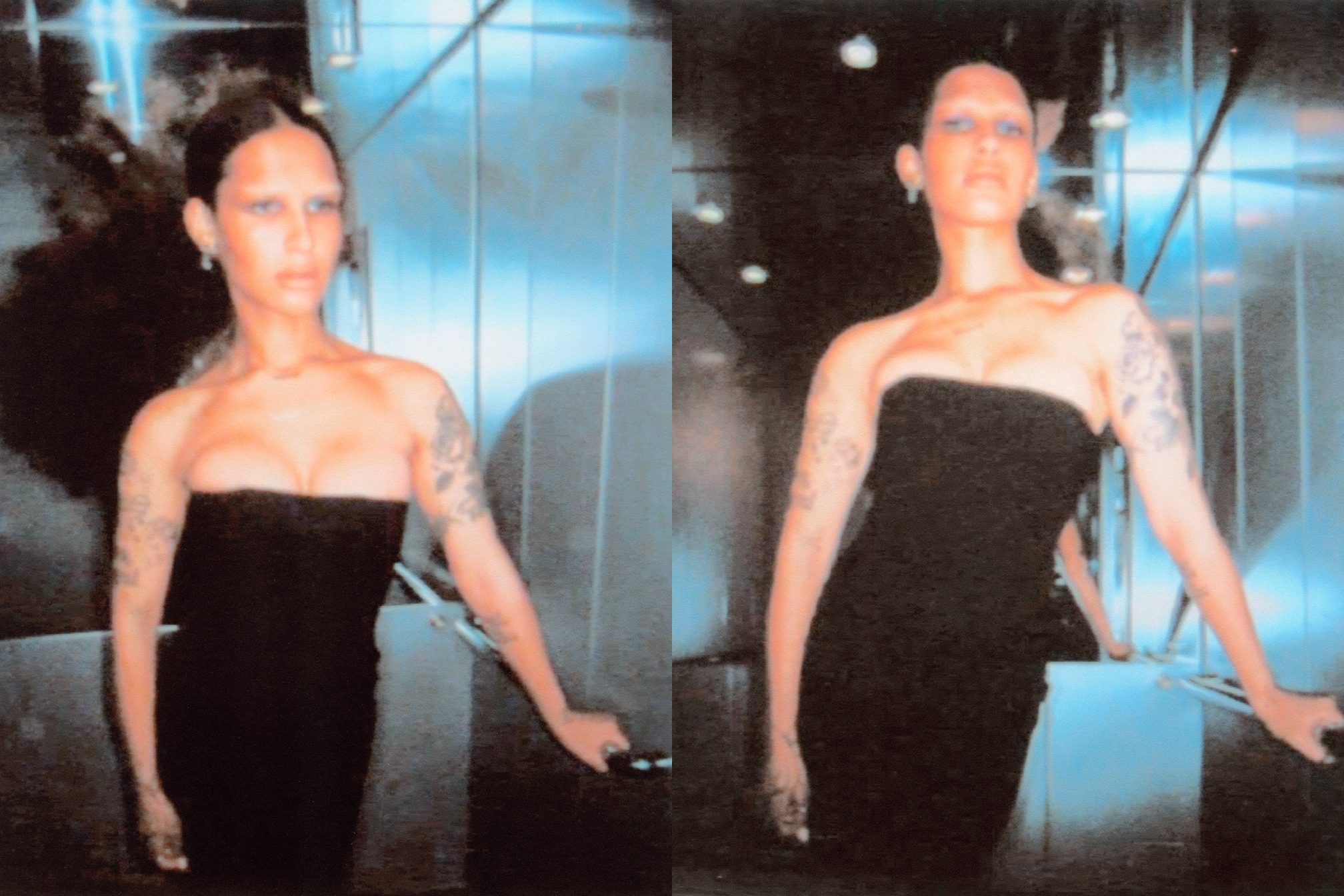
The rise of TAAHLIAH has been astonishing. Her artistry, as a musician, is still fresh-faced, yet it hums with so much depth. Now, with ‘Gramarye’, she crystalises her sound, extrapolating stories of the past and present all to set the tone of the future. Her newer influences are delightfully unpredictable - like Lily Allen - who she is currently transfixed by. “I'm enamoured by the way she writes her songs, which is potentially something that I might try and implement in my next piece of work,” she smiles. “A lot of people would expect me to be listening to a lot of electronic music which wasn’t the case!”
As for her next creative ambition, she’s ready to escape the high-octane world of thrumming club beats and trade it for the calm of canvas and paint pots. “I've been making this record, which has been amazing, but that's kind of the only thing that I've been doing. I now want to spend the next two years delving into the realm of painting because that's how I started making art,” she explains. “I want to see what it would be like to make an album purely off the paintings.”
She adds, thinking about what’s next: “All my art will live in the TAAHLIAH world even on a purely aesthetic basis. TAAHLIAH was a name that I chose when I was 19 and anything that I make I always want to make under it. It all solidifies the artistry that I'm continuing to practice.”
TAAHLIAH strides through 2024 having confidently left her artistic mark. The musician spent the last few years looking for a new venture and, seemingly enough, she’s found it. Whether she’s testing beats on her down-trodden 2015 MacBook or transferring her creative spark to the canvas, she will continue to be an unstoppable artist.
‘Gramarye’ comes out via untitled (recs) on October 18, pre-order it here
Zoya Raza-Sheikh is a freelance music journalist, follow them on Twitter


